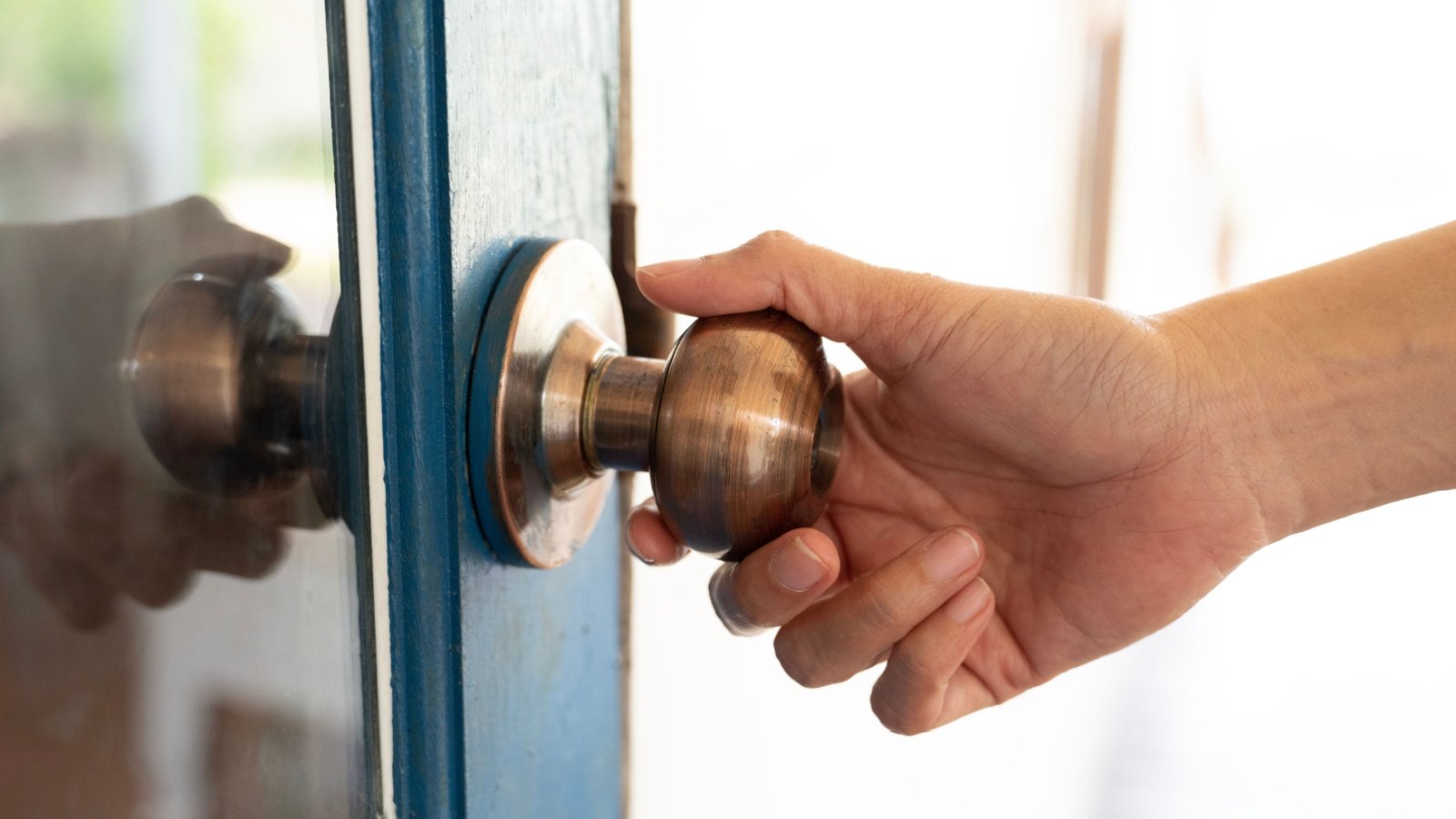Navigating social gatherings with grace requires an understanding of etiquette, yet many party guests unknowingly commit a common faux pas.
These manner mistakes can ruin the mood of an otherwise enjoyable event. Understanding these blunders and how to avoid them is key to being a courteous guest.
Let’s walk through the most common etiquette mishaps and how to avoid them, ensuring your next party appearance leaves a positive impression.
Arriving Too Early

Arriving before the scheduled time can catch your host off guard, as they may still be preparing for the event. It’s important to respect the start time on the invitation, as arriving early can create unnecessary stress. Being punctual, or fashionably late by about 10 to 15 minutes, is generally more considerate.
Ignoring the Dress Code

Disregarding a specified dress code can make you stand out for the wrong reasons. Whether it’s a casual gathering or a black-tie affair, dressing appropriately shows respect for your host’s efforts. Ignoring this detail can lead to uncomfortable situations and a lack of cohesion in the event’s atmosphere.
Failing to RSVP

Not responding to an invitation can cause logistical challenges for the host, who needs an accurate headcount for planning purposes. Whether it’s a formal RSVP or a simple text, confirming your attendance is essential. This oversight can lead to an awkward conversation or even an unprepared host.
Bringing Uninvited Guests

Showing up with extra people, especially without informing the host in advance, can throw off the entire event. It’s crucial to ask for permission before bringing someone along, even if it’s just a plus one. Respecting the guest list ensures that the host can accommodate everyone comfortably.
Monopolizing Conversations

Dominating discussions without allowing others to contribute can come off as self-centered and inconsiderate. Engaging in balanced conversations, where everyone has a chance to speak, is key to being a gracious guest. Remember, a good party guest listens as much as they talk.
Overindulging in Alcohol

Drinking too much at a party can quickly turn a fun evening into an embarrassing ordeal. It’s important to know your limits and pace yourself, ensuring that you remain a pleasant and responsible guest. Overindulgence not only affects your behavior but can also disrupt the event for others.
Arriving Empty-Handed

Showing up to a party without a small gift or contribution can be seen as thoughtless, especially if the gathering is in someone’s home. A bottle of wine, a dessert, or a bouquet of flowers are simple gestures that show appreciation for the host’s efforts. This small act of generosity goes a long way in setting a positive tone for the evening.
Ignoring the Host

Failing to greet and thank the host upon arrival and departure is a common oversight. Acknowledging the person who invited you shows respect and gratitude for their hospitality. A warm greeting and a sincere thank you at the end of the night leave a lasting positive impression.
Not Following Up After the Party

Forgetting to send a thank-you note or message after the party can make you seem unappreciative. A simple text or handwritten note thanking the host for their hospitality shows that you valued the experience. This small gesture can strengthen your relationship with the host and ensure future invitations.
Overstaying Your Welcome

Lingering long after the event has ended can put unnecessary pressure on the host, who may be ready to clean up or relax. Paying attention to social cues, like the host starting to tidy up, can help you recognize when it’s time to leave. Respecting the host’s time shows that you’re considerate and aware of their efforts.
Being Inattentive to Dietary Restrictions

Ignoring or dismissing dietary preferences or restrictions when bringing food to a potluck can create uncomfortable situations. Asking the host ahead of time about any restrictions ensures that everyone can enjoy the meal. This consideration reflects thoughtfulness and a willingness to contribute positively to the event.
Using Your Phone Excessively

Constantly checking your phone or engaging in social media can be seen as rude and disengaging at a social event. Being present and participating in the event shows respect for the host and other guests. Excessive phone use can signal boredom or disinterest, diminishing the social atmosphere.
Talking Politics or Religion

Bringing up controversial topics like politics or religion can lead to uncomfortable or heated discussions. These subjects often polarize people, potentially causing tension in an otherwise light-hearted environment. It’s better to stick to neutral topics that everyone can enjoy discussing.
Taking Over the Music

Assuming control of the playlist or DJing without permission can disrupt the party’s flow and the host’s vision. The music chosen by the host is likely curated to set a specific mood or theme for the event. Respecting their choices ensures that the atmosphere remains cohesive and enjoyable for all.
Failing to Participate in Group Activities

Refusing to join in planned activities or games can come across as uncooperative or uninterested. Even if the activity isn’t your favorite, participating shows that you’re engaged and supportive of the host’s efforts. Your involvement contributes to the overall energy and enjoyment of the event.
Leaving Without Saying Goodbye

Slipping out of a party without saying goodbye to the host is not only impolite but can also make them wonder if you had a bad time. A quick farewell and a thank you show that you appreciated the invitation and the event. This simple act of courtesy leaves a positive final impression.
Overloading Your Plate

Piling your plate high during a buffet-style meal can seem greedy and inconsiderate to other guests. Taking modest portions allows everyone to enjoy the offerings and prevents waste. You can always go back for seconds if there’s plenty to go around.
Being Too Critical

Offering unsolicited opinions about the food, decor, or other aspects of the event can be seen as ungracious. Even if something isn’t to your liking, keeping negative thoughts to yourself is the polite thing to do. Complimenting the positive aspects of the party instead fosters a more enjoyable atmosphere.
Not Mingling with Other Guests

Sticking to one person or group all night can prevent you from fully engaging in the social aspect of the party. Making an effort to introduce yourself to new people or circulate among different groups shows that you’re sociable and interested in connecting. This helps create a more dynamic and inclusive environment for everyone.
Assuming You Can Take Leftovers

Taking food or drinks home without the host’s permission can be presumptuous and inconsiderate. It’s important to ask before assuming that leftovers are up for grabs. This ensures that you’re not taking something the host had planned to keep or share with others later.
Ignoring House Rules

Disregarding house rules, such as removing shoes or not smoking indoors, can be seen as disrespectful. It’s important to follow any guidelines the host has set for their home, as these rules are in place for a reason. Observing house rules shows that you’re a respectful and considerate guest.
Arriving Sick

Showing up to a party while feeling under the weather can put other guests at risk of illness. It’s better to politely decline the invitation and stay home to recover rather than potentially spreading germs. This decision demonstrates that you care about the well-being of others.
Talking Over Others

Interrupting or talking over others during conversations can come off as rude and dismissive. It’s important to listen and allow others to finish their thoughts before jumping in. Respectful conversation etiquette fosters a more pleasant and inclusive social environment.









Gerade in den VIP-Programmen setzen zahlreiche Casinoanbieter auf sogenannte Big- oder Super Spins.
Es ist bekannt, dass die Freispiele für die Neukunden summarisch nicht besonders wertig sind.
Casino Freispiele können auch im Rahmen eines
VIP- und Treueprogramms vergeben werden. Meistens enthalten die Newsletter
selbst Bonus Codes für Freespins. Das Angebot ist
einmalig und mit das beste Angebot, das Spieler ohne Einzahlung erhalten können. 30 Freispiele
erhält der Spieler sofort und an den nächsten 7 Tagen erhält der Spieler jeweils 10 Freispiele.
Wenn wir über ein Online Casino mit Echtgeld Bonus
ohne Einzahlung sprechen, ist das das klassische Gegenteil eines Einzahlungsbonus.
Bei diesen messen sich Spieler mit anderen Glücksspielern. 🎁 Zusätzlich zum
EinzahlungsbonusWenn wir über ein Online Casino mit Echtgeld Bonus ohne Einzahlung
sprechen, ist das das klassische Gegenteil eines Einzahlungsbonus.
Es ist durchaus möglich, mit Boni ohne Einzahlung echtes Geld zu gewinnen, aber es ist wichtig, mit realistischen Erwartungen an die
Sache heranzugehen und zu wissen, wie diese Boni funktionieren. Normalerweise werden Boni ohne
Einzahlung neuen Spielern angeboten, wenn sie sich anmelden. Cashback
Bonusse unterscheiden sich etwas von anderen Bonusangeboten ohne Einzahlung.
Sobald die Freispielzeit endet, werden die Gewinne oft
in Bonusgeld umgewandelt und dem Spielerkonto gutgeschrieben.
References:
https://online-spielhallen.de/rocketplay-casino-freispiele-ihr-weg-zu-extra-spielspas/
Removing a player’s checker from the board and sending it back to the beginning.
Your opponent can not enter this space or remove
your checkers when you achieve a prime. An open point is any point that is currently unoccupied, meaning that
no players have placed a checker here.
Being the first to bear off also means that you need to stand in the way of your
opponent as much as possible. As such, you should avoid leaving a single
checker in one place for too long, as this
runs the risk of it being returned to the starting position. Try to secure points near your home board.
When you have made your way around the board (completed one circle), you can begin to bear off.
This means that you and a friend can play from the same phone or computer,
simply passing the phone to each other when necessary.
However, the rules for this game are the same as outlined above.
References:
https://blackcoin.co/treasury-casino-a-comprehensive-overview/
online casino mit paypal einzahlung
References:
https://taradmai.com/profile/elenarason8990
online australian casino paypal
References:
lr-mediconsult.de
Very good blog you have here but I was wondering if you knew of any discussion boards that cover the same topics discussed here? I’d really like to be a part of group where I can get opinions from other experienced people that share the same interest. If you have any suggestions, please let me know. Thank you!